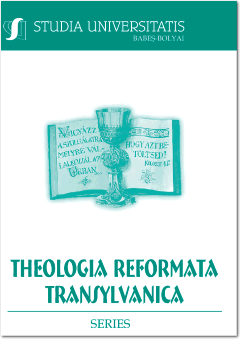THE ORIGINS AND NATURE OF WOLFGANG MUSCULUS DUSANUS’ (1497–1563) POLITICAL THEOLOGY
THE ORIGINS AND NATURE OF WOLFGANG MUSCULUS DUSANUS’ (1497–1563) POLITICAL THEOLOGY
Author(s): Gábor János LányiSubject(s): Theology and Religion
Published by: Studia Universitatis Babes-Bolyai
Keywords: Wolfgang Musculus Dusanus; Political Theology; Reformation of Berne; Calvin; Calvinism; Geneva; Reformation Debate; State-Church Relations.
Summary/Abstract: Wolfgang Musculus’ Loci Communes (Common Places) of 1560 places the administration of the church under the authority of the secular magistrate, emphasizing that the secular government is in charge of even the most internal of church matters, like the appointment of pastors, the supervision of church discipline, the administration of church property, and the enforcement of ecclesiastical ordinances. According to Helmut Kressner’s viewpoint Musculus’ understanding about the secular government’s authority over church affairs was formed by the controversy between the Bernese Magistrate and the theologians of Geneva. James Thomas Ford’s research points to the fact, that many of Musculus’ arguments that appears in the Loci Communes have already been used in other tracts in which Musculus exhorted the Augsburg Council to establish the Reformation in the city in the 1530s.The goal of this paper is to present these common arguments, discuss what they are based on, and examine what kind of role the early church and the Church Fathers played in Musculus’ justification of the state’s involvement in church matters.
Journal: Studia Universitatis Babeș - Bolyai Theologia Reformata Transylvanica
- Issue Year: 63/2018
- Issue No: 2
- Page Range: 86-104
- Page Count: 19
- Language: English

